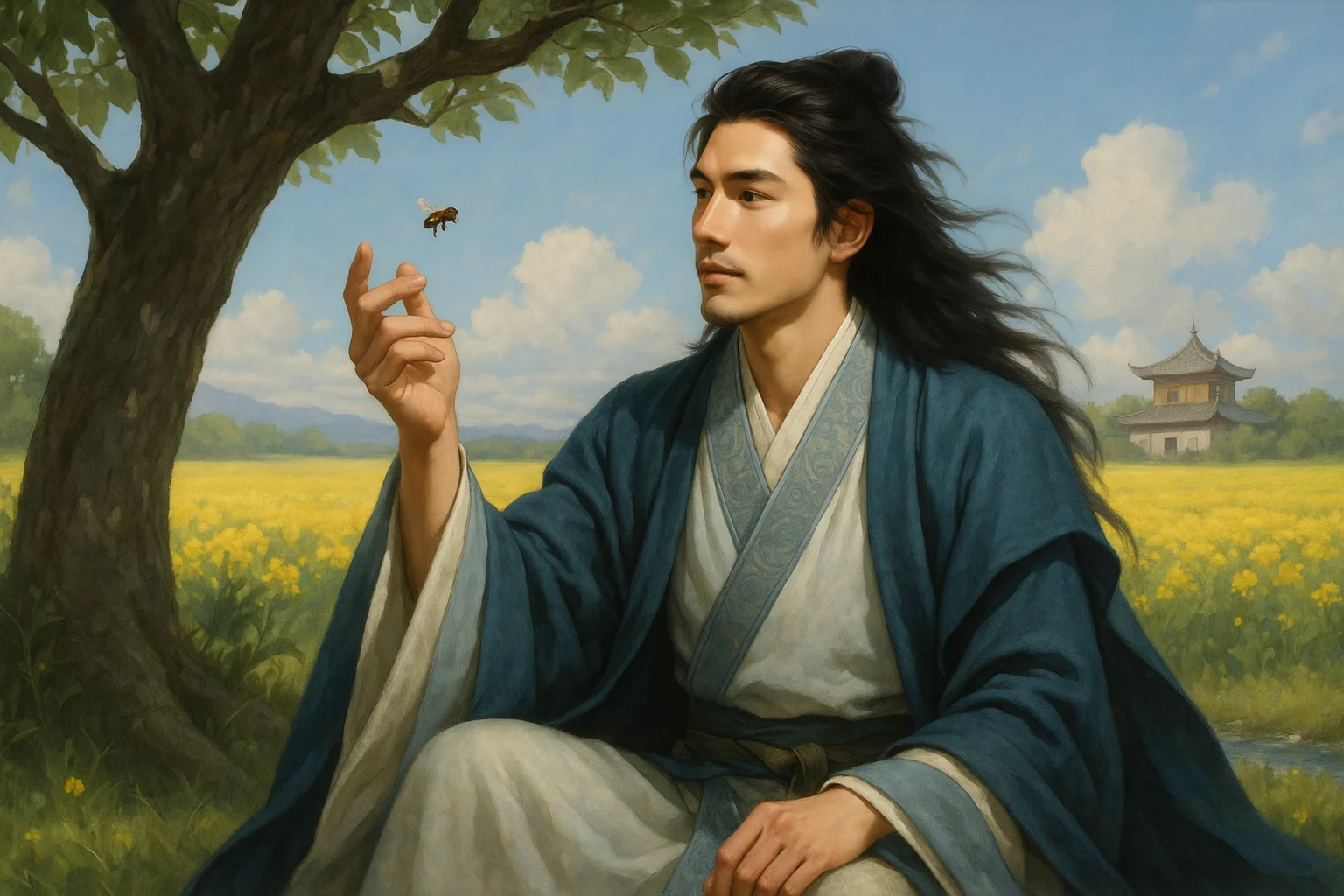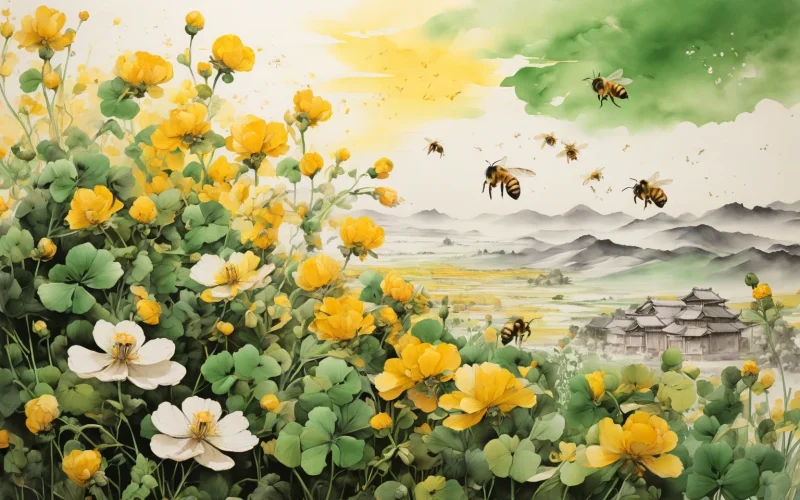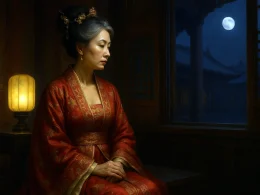On the plain or atop the hill,
Of beauty you enjoy your fill.
You gather honey from flowers sweet.
For whom are you busy and fleet?
Original Poem
「蜂」
罗隐
不论平地与山尖,无限风光尽被占。
采得百花成蜜后,为谁辛苦为谁甜?
Interpretation
Composed around 859 AD during Emperor Xuanzong's reign, this poem was written when Luo Yin, repeatedly failing the imperial examinations, witnessed a corrupt society where eunuchs and nobles monopolized power while commoners toiled in vain. Using bees as metaphor, he critiques social injustice and expresses sympathy for laborers.
First Couplet: "不论平地与山尖,无限风光尽被占。"
Bù lùn píng dì yǔ shān jiān, wú xiàn fēng guāng jìn bèi zhàn.
Across plains and mountain peaks - all fragrant blooms are occupied.
Superficially praising bees' industriousness in harvesting every blossom, these lines actually satirize how elites monopolize society's resources. The apparent celebration sets up the subsequent irony through "all occupied"—a masterful "praise-before-critique" structure.
Second Couplet: "采得百花成蜜后,为谁辛苦为谁甜?"
Cǎi dé bǎi huā chéng mì hòu, wèi shuí xīn kǔ wèi shuí tián?
Having gathered blooms to make honey - for whom your toil? For whom the sweetness?
The rhetorical question unveils the poem's fury: workers create wealth that others enjoy. This lament for "laborers unrewarded while idlers prosper" reflects both societal injustice and the poet's own thwarted ambitions, compacting centuries of peasant suffering into one piercing query.
Holistic Appreciation
The bee becomes every exploited laborer in this deceptively simple allegory. The first couplet's apparent praise of insect industry thinly veils scorn for resource-hoarding elites; the second couplet's question strikes like a dagger to reveal systemic theft of labor's fruits. Beneath its gentle surface runs a current of outrage—personal disappointment widening into a cry for Tang dynasty's oppressed masses, making this four-line poem a masterclass in economical political protest.
Artistic Merits
- Layered irony: Surface description conceals biting social critique
- Structural precision: Praise-to-question progression maximizes impact
- Accessible profundity: Simple language delivers complex class analysis
- Resonant closure: The unanswered question lingers like honey's aftertaste
Insights
This poem demonstrates how art can weaponize the everyday to challenge power structures. Luo Yin's bee transcends entomology to become both the suffering worker and the poet's own stung aspirations. Its enduring relevance reminds us that great literature often speaks through small creatures—the marginalized carrying society's sweetest truths in their bitter labor. The poem's central question still demands answers today: Who really profits from others' toil?
Poem translator
Xu Yuanchong (许渊冲)
About the poet

Luo Yin (罗隐), 833-909 AD, was a poet of the Tang Dynasty, a native of Hangzhou. His poems have the spirit of entering the world by facing the reality and life directly, bravely fighting against the darkness of the society with his poetic pen, attacking the bad government of the society, reflecting the hardship of the people in the society and expressing his personal hardships.












